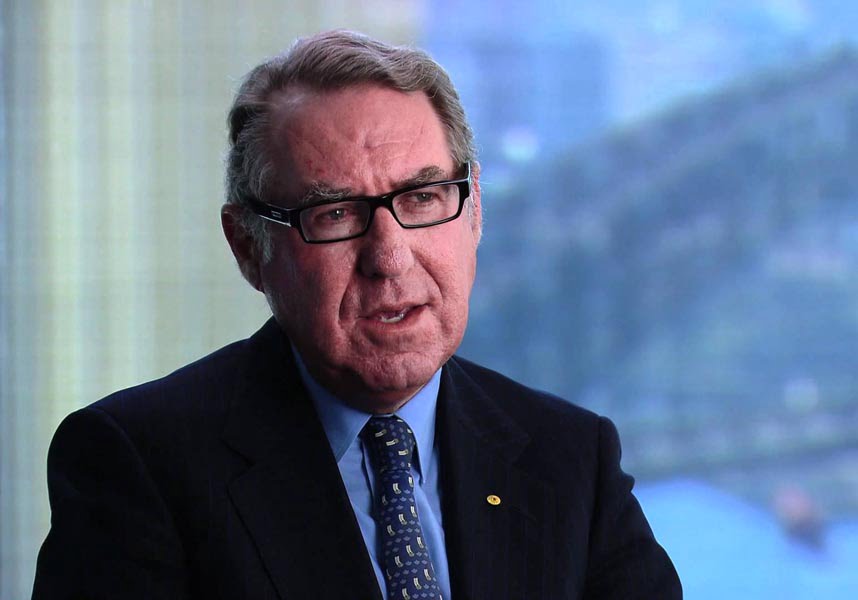A cloud-based student assessment tool to support teachers; a universal student identifier that tracks children through 13 years of school; and data-driven innovation from schools themselves are among the 23 recommendations in the latest Gonski education review.
Minister for Education and Training, Simon Birmingham and David Gonski, who chaired the review, will take the recommendations to a meeting of State and Territory education ministers this Friday and are also promoting the report to independent schools.
The Review to Achieve Educational Excellence in Australian Schools notes the need for action saying that Australia’s education standards have fallen in real terms. It cites OECD statistics which suggest that between 2000 and 2015 Australia dropped from fourth in the world for literacy to 16th, from seventh in mathematics to 25th and from fourth in science to 14th.

Left unchecked that heralds a major problem for the nation’s economic competitiveness. According to the most recent Digital Pulse report compiled for the Australian Computer Society by Deloitte, Australia needs 695,000 ICT workers by 2020; but 2.8 million employees must have developed strong digital skills by 2022 to meet industry requirements.
The latest Gonski report stresses the decline in “routine” jobs which are increasingly automated, and the rising need for more skilled workers.
“By the end of schooling, every Australian child needs to emerge as a connected and engaged learner, prepared to succeed in and contribute to a rapidly changing world. This means students must have acquired the basic building blocks of learning, in particular literacy and numeracy skills,” it said.
“They must also have a range of skills providing the job resilience required to be able to adapt and respond to fast-shifting education and workforce needs” with particular need for people able to handle interactive highly skilled work.”
Key to the recommendations is support for continuous innovation in schools, supported by a new national evidence institute geared to rapidly disseminating best practice and evidence-based innovations.
A national unique student identifier (USI) meanwhile will allow the progress of each child to be transparent no matter which school they attend, or how many times they move.
While the report is technology agnostic as to how that is achieved, the requirement that teachers be able to access the information from whatever device they choose, suggests that a cloud-based solution will be deployed – with high security requirements and tight access controls given the sensitive information it will harbour.
The report notes that Australian Governments’ signaled their support for such an initiative back in 2009 – but that progress to date had been slow. It notes that; “The benefits of implementing the USI justify the effort required, and this should be prioritised by Commonwealth, state and territory governments.”
“The technology to deploy a USI has advanced significantly in the last decade and should no longer be a barrier to progress. With a growing amount of data being generated and collected, a USI would provide the critical backbone around which data could be aggregated and analysed,” it states.
More access to individual information would, according to Mr Gonski, guard against the temptation for teachers to “bowl down the middle” during lessons in the hope that approach would allow most students to improve, while talented students would be able to stretch themselves.
Allowing more granular access to individual student data would allow targeted individual learning according to Mr Gonski – though he didn’t explain how teachers who are already stretched for time might be supported in crafting and delivering individually tailored lessons.
Business Council of Australia chief executive Jennifer Westacott was quick to support the Gonski recommendations which resonate with the BCA’s own lifelong learning proposals released last year.
“The proposal to shift the focus to individual learning and achievement is one the Business Council canvassed in its paper Future-Proof: Protecting Australians Through Education and Skills, and is particularly important in lifting the performance of all young Australians,” said Ms Westacott.
The BCA went further with its proposal, advocating that all Australians have a life-long learning account, that they can tap to top up their skills on a regular basis. It hasn’t yet made clear how that might be funded.
The Gonski recommendations meanwhile focus more on getting the basics right during the K-12 years. The review notes that today’s 15 year-olds will likely have five different careers and 17 employers while school graduates needed stronger problem-solving, communication, digital skills, and creative thinking capabilities than previous generations.
The report also calls for action on teacher shortages particularly in maths and science. It cited research showing that as many as 40 per cent of maths and science lessons were being delivered by teachers from other fields of expertise.
The Australian Computer Society last week backed calls for more STEM skilled teachers at all levels of the school system.
Do you know more? Contact James Riley via Email.

